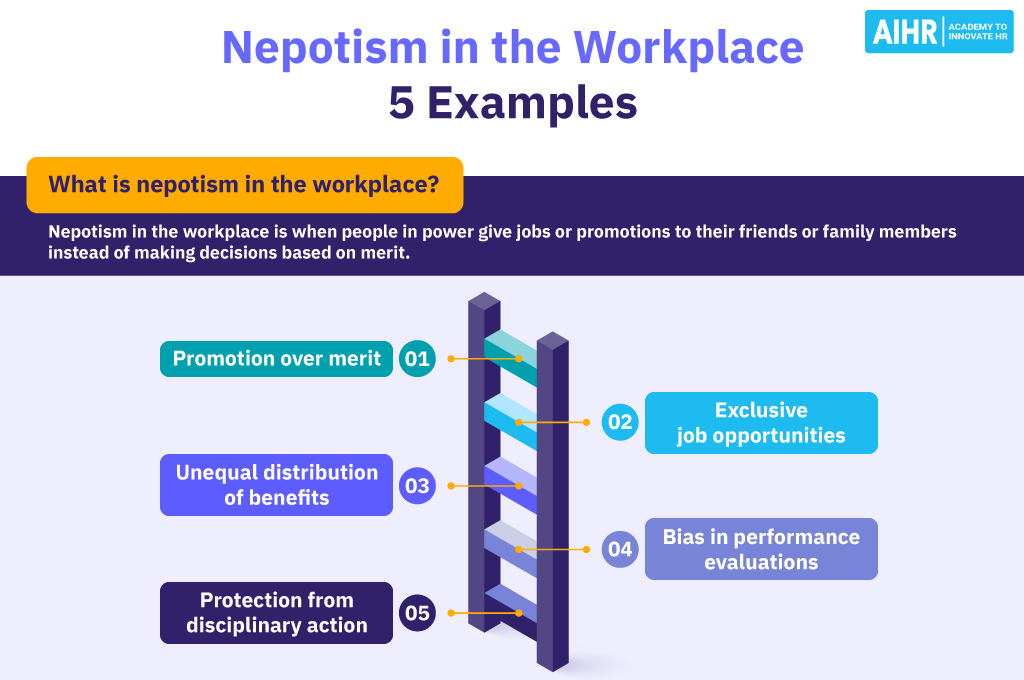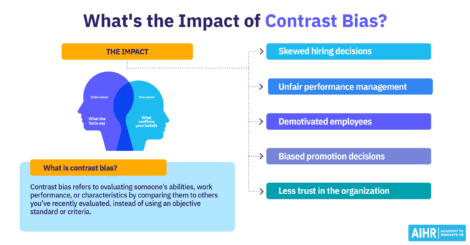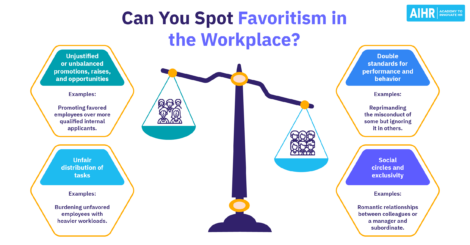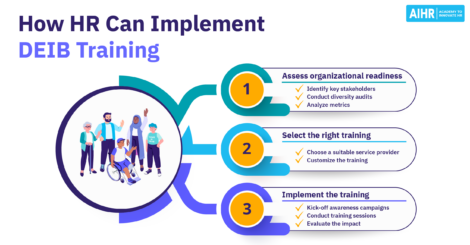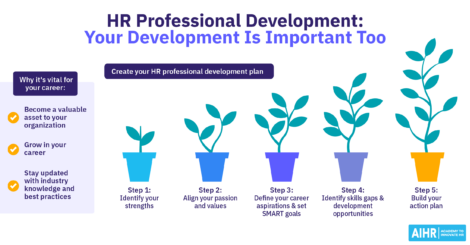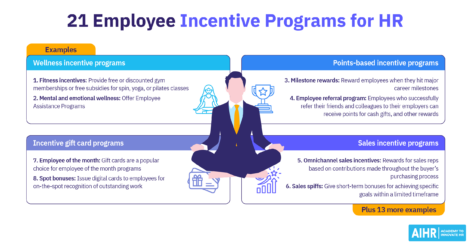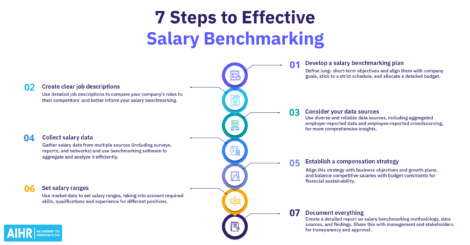Nepotism in the Workplace: Identify 6 Toxic Signs
When the boss’s son lands that Director position straight out of college — that’s nepotism. Favoring friends or family erodes the foundation of a company, hinders growth, and can ultimately lead to its downfall.

You find yourself in a challenging position during an interview with a candidate for a supervisory role. The young man sitting across from you is underqualified compared to the other candidates and lacks the skills required for a leadership position.
Despite your professional reservations, you know you will hire him because he’s the CEO’s son.
Contents
What is nepotism in the workplace?
Is nepotism in the workplace illegal?
Impact of nepotism in the workplace
Examples of nepotism in the workplace
Spotting the signs of toxic nepotism
How HR can handle nepotism in the workplace
What is nepotism in the workplace?
Nepotism in the workplace is when people in power give jobs or promotions to their friends or family members instead of making decisions based on merit. It takes many forms, from overt job offers to more discreet forms of favoritism. While commonly seen in family-owned businesses where hiring relatives is not unusual, nepotism also happens in larger corporations and governmental organizations.
Interestingly, a new study found that Gen Z employees are most likely to benefit from career nepotism — even if they disapprove of it. More than two-thirds of Gen Z have secured job offers through nepotism. The survey of 2,000 workers found 42% said they’d won a role or job offer through nepotism.
The consequences are profound, often leading to lower morale, higher turnover among non-related staff, and a drop in innovation because the most qualified individuals aren’t selected for the role. When it’s part of the organizational culture, HR professionals face specific challenges in dealing with it.
Is nepotism in the workplace illegal?
In the U.S., nepotism in the workplace is not generally illegal in the private sector unless it leads to discrimination or breaches of a specific contract. Nepotism becomes a legal issue if it conflicts with anti-discrimination laws or company-specific policies that forbid such practices. This is especially relevant in publicly traded companies under regulations like the Sarbanes-Oxley Act, which requires the disclosure of conflicts of interest to stakeholders.
However, there are more explicit restrictions against nepotism in the public sector. Federal laws, such as 5 U.S. Code § 3110, prohibit public officials from employing or promoting relatives in agencies they have authority over. This law specifies a wide range of familial relationships that fall under its purview, from immediate family members to more extended relatives like cousins and in-laws.
State laws vary significantly. Some have stringent anti-nepotism laws, particularly concerning public employment and the conduct of elected officials. For instance, Kansas and Kentucky have specific statutes that prevent public officials from hiring or advocating for the employment of family members. Ohio also has robust ethics laws that prohibit public officials or employees from participating in the hiring process of family members and restrict their involvement in any employment decisions affecting those relatives.
These laws aim to maintain fairness and uphold merit-based hiring in the public sector. They align with both legal mandates and ethical principles to eliminate conflicts of interest and ensure every candidate has an equal chance during the hiring process.
Rupert Murdoch’s News Corp sued over ‘nepotism’
Rupert Murdoch’s News Corporation was sued by shareholders, including Amalgamated Bank of New York and the Central Laborers Pension Fund, alleging nepotism in its $675 million purchase of Shine, a production company owned by his daughter, Elisabeth Murdoch. The lawsuit, filed in Delaware, claimed the transaction did not prioritize shareholder interests and accused Rupert Murdoch of treating News Corp like a private enterprise. Critics argued that the price was excessively high and lacked proper due diligence.
Despite these allegations, News Corp defended the acquisition, stating Shine was a strategic fit within their entertainment portfolio. The deal was under review and awaiting approval from News Corp’s audit committee and board. It required an independent fairness opinion. Shine, known for producing popular shows like “The Biggest Loser” and “MasterChef,” had reported significant revenue growth and was a major player in the U.K.’s independent production sector.
The impact of nepotism in the workplace
The impact of nepotism can be significant in the workplace. When left unchecked, nepotism can:
- Reduce employee morale and motivation: When family members or friends are favored for promotions or hiring, it can demoralize other employees who feel their hard work and qualifications are overlooked. This perception can lead to decreased job satisfaction and commitment among staff, reducing overall workplace morale.
- Be perceived as unfair and increase workplace conflicts: Nepotism can create an environment of perceived injustice, where employees feel the playing field is not level. This can lead to resentment and disputes between employees and management and among the employees themselves, potentially disrupting teamwork and collaboration.
- Decrease productivity and efficiency: When positions are filled based on relationships rather than skills or experience, it may result in less competent job performance. This can negatively impact the productivity and efficiency of the team or the entire organization, as less qualified individuals may struggle with job responsibilities they are not equipped to handle.
- Result in talent drain: High potential employees who perceive a ceiling to their growth within an organization due to nepotistic practices may seek opportunities elsewhere. This talent drain can leave the organization with less skilled individuals, impacting innovation and the ability to compete in the market.
- Damage the organizational reputation: Public knowledge of nepotistic practices can tarnish an organization’s reputation, making it harder to attract skilled professionals. It could also potentially impact relationships with clients, investors, and partners who may see such practices as indicative of poor management or ethical standards.
- Increase legal risks: In certain jurisdictions, especially within public sector jobs or in companies with specific policies against nepotism, engaging in such practices can lead to legal challenges and sanctions, further harming the organization’s standing and operational capability.
HR tip
Implement a formal recusal process
Require employees, especially those in supervisory roles, to formally withdraw from decision-making activities – on hiring, promotions, and salary adjustments – where their personal relationships could influence the outcome. Develop clear guidelines on identifying and documenting potential conflicts of interest and provide training to all employees to reinforce the importance of this process.
Examples of nepotism in the workplace
There are several ways that nepotism can occur:
Promotion over merit
When family members or friends of leadership are promoted over more qualified candidates. This can lead to leadership gaps, decreased employee morale, and reduced organizational effectiveness.
For instance, the CEO’s niece receives a managerial position despite having significantly less experience than other applicants.
Exclusive job opportunities
Job openings are sometimes not publicly posted or shared only within a specific network. This gives an unfair advantage to those within the leader’s personal circle.
An example would be a high-level position that is filled before it is advertised externally, where the chosen candidate is a close friend of the executive. This limits opportunities for existing employees and external candidates who may be more skilled and suitable for the role.
Unequal distribution of benefits
Family members or close friends in the organization may receive unjustifiable benefits such as higher salaries, better office spaces, or more flexible working conditions compared to their colleagues at similar levels.
This inequality can breed resentment among employees and create a divided workplace culture.
Bias in performance evaluations
Relatives or friends might receive favorable performance evaluations that don’t reflect their actual contributions or achievements.
For example, a department head might overlook mistakes made by a relative and instead highlight their strengths. This then leads to skewed performance reviews that can affect salary increases, bonuses, and career progression.
Protection from disciplinary action
Family members or friends may be shielded from disciplinary actions that others in similar positions would normally face.
For instance, if a relative of a senior manager violates company policies, they might face lesser consequences or none at all, which undermines the integrity of workplace policies and can lead to legal and ethical issues.
Spotting the signs of toxic nepotism
Here’s a checklist you can use to spot the signs of toxic nepotism:
- Unusual hiring practices: Watch for hiring processes that skip standard procedures or transparency. If candidates are hired without proper interviews or without the job being openly advertised, it could indicate nepotism.
- Unfair performance evaluations: Look out for inconsistencies in how performance reviews are conducted and documented. If certain employees always receive positive reviews despite their average or below-average performance, or if they are frequently excused from meeting key performance indicators, it might suggest nepotism.
- Resistance to standard oversight: Notice if certain managers or employees frequently bypass normal channels for approval or oversight, especially in staffing decisions or project assignments. This could be a sign that decisions are being made based on personal relationships rather than professional merit.
- Disproportionate rewards and recognition: Track how rewards, raises, and promotions are distributed. A red flag should be raised when promotions and bonuses are regularly given to less qualified individuals who have personal ties to management.
- Complaints from employees: Pay attention to employee’s feedback, whether through formal surveys or informal conversations. Frequent mentions of unfair treatment or dissatisfaction with management’s impartiality can be indicative of deeper issues related to nepotism.
- High turnover in specific departments: High turnover rates in certain teams or under specific leaders can indicate a toxic environment, possibly fueled by nepotistic practices. Investigate the reasons behind why employees leave, focusing on any patterns that suggest dissatisfaction related to unfair treatment.
HR tip
Develop an onboarding program for family members
Create a targeted onboarding program for family members of existing employees. Focus on educating new hires about the company’s principles of meritocracy and the ethical guidelines surrounding professional conduct. Include a module specifically designed to address potential conflicts of interest and the expectations for professional behavior. Assigning a mentor who is not directly connected to the family member can provide unbiased support and guidance, helping integrate the new employee into the company culture equitably.
How HR can handle nepotism in the workplace
Here are several strategic actions HR can undertake to manage and mitigate the impact of nepotism effectively:
- Step 1: Creating clear anti-nepotism policies: Develop and implement comprehensive policies that clearly define what constitutes nepotism and the consequences of engaging in it. Include guidelines for hiring, promotions, and any other areas where nepotistic practices might arise. Ensure these policies are included in the employee handbook and that all employees are aware of them.
- Step 2: Fostering open communication: Encourage a culture where employees feel safe to report any suspicions of nepotism without fear of retaliation. This could involve setting up anonymous feedback systems or having a designated ombudsperson handle such complaints.
- Step 3: Transparency in HR processes: Maintain transparency in all HR processes, particularly hiring, promotions, and performance evaluations. Publicize job postings internally and externally to ensure fairness, and openly communicate the criteria and processes used for making these decisions.
- Step 4: Training for managers and executives: Provide training sessions for all managerial and executive positions on the effects of nepotism and the importance of maintaining fairness and meritocracy in all decision-making processes. Cover how to handle personal relationships professionally within the organization.
- Step 5: Regular audits of HR practices: Conduct regular audits of HR practices to ensure compliance with established policies and to detect any irregularities that might suggest nepotism. This can help identify issues before they become systemic problems.
- Step 6: Conflict of interest declarations: Require employees and management to declare any potential conflicts of interest, including those involving family members or close friends. This helps HR monitor situations where nepotism could occur and take preventative measures.
To sum up
- Negative impacts of nepotism: Nepotism can lead to a range of adverse outcomes, including reduced employee morale, decreased productivity, and a perception of unfairness within the organization. These factors can diminish workplace harmony and efficiency.
- HR’s role in addressing nepotism: HR plays a crucial role in mitigating the effects of nepotism through clear policies, transparent HR processes, and training. This helps to cultivate a fair work environment and maintain organizational integrity.
- Establishing formal recusal processes: Implementing a formal recusal process helps manage conflicts of interest effectively. By requiring employees to step aside from decision-making when personal relationships might influence outcomes, your organization can uphold fairness and impartiality in critical processes such as hiring and promotions.
- Effective onboarding for relatives: Specialized onboarding programs for family members of existing employees can prevent potential biases and reinforce the company’s commitment to meritocracy. This includes comprehensive training on the company’s ethics and professional conduct expectations and unbiased mentorship to support their integration into the company culture.
Weekly update
Stay up-to-date with the latest news, trends, and resources in HR
Learn more
Related articles
Are you ready for the future of HR?
Learn modern and relevant HR skills, online





